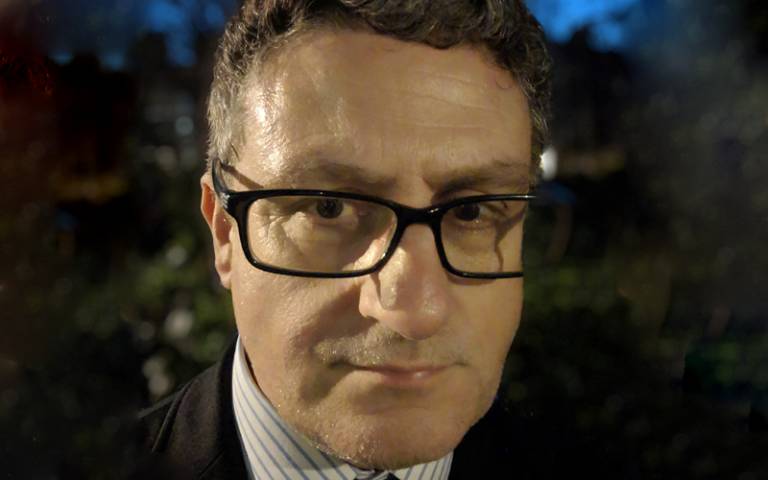Opinion: Why the Alexei Navalny protests just might restore hope to Russian politics
1 February 2021
Apathy may be the dominant political feeling in Russia, but Putin's rule won't last forever, says Honorary Professor Mark Galeotti (UCL School of Slavonic & East European Studies).

When the Russian opposition decided this time to hold a demonstration in front of the Lubyanka, headquarters of the fearsome Federal Security Service (FSB), they were raising the stakes. In response, the Kremlin opted to double down.
Last week’s protests were met with sporadic police violence that, however horrific, seemed simply to result from local overreaction and indiscipline.
Yesterday’s response was not just more heavy-handed, it was systematically so. All of central Moscow was turned into a fortress; tear gas and tasers used in St Petersburg; detainees forced to lie down in the snow in Kazan. Overall, while perhaps fewer came out to march this time, the tally of arrests was higher: almost five thousand.
The government’s strategy seems to be to ratchet up the pressure, bit by bit. The aim is to scare away all but the truly hard-core opposition by the threat of near-random arrest or beating, and to leave everyone in no doubt that the Kremlin could do even worse, and will if it has to.
Putin, after all, is a post-modern dictator. His regime has to a large extent maintained itself not through fear and force, but apathy. Russians have been convinced that, however imperfect, what they have is about the best for which they could hope.
They have also been sold the idea that there is no point in politics. In a stage-managed fake democracy, the ‘opposition’ parties are toothless and ugly, so why vote for them? If change is impossible, why risk persecution by working for it?
This is what makes Navalny a problem for the old men in the Kremlin. By continuing to organise and campaign, by putting his devastating exposés of official corruption on the internet where the Kremlin cannot suppress it, and now by voluntarily putting himself into his persecutors’ hands, Navalny doesn’t just undermine Putin’s own claim to be working for the good of his people. He also reminds Russians that they still have choices and real politics may not be dead, just resting.
Putin may not want to rule from a throne of bayonets, but he will if he has to. The tragic truth is that the more successful the protests, the less likely they are to secure Navalny’s freedom. But he presumably must have known that.
Putin’s regime is not going anywhere any time soon. He has the support of the elites and the security forces. But Putin will not last for ever, and this is a long game.
After all the struggle is not really between Navalny and Putin. Instead, it is about legitimacy and hope. The more the current regime is revealed as an authoritarian kleptocracy, the less it can claim legitimacy. And the longer the opposition can survive, the greater the chances of rekindling optimism and hope amongst those many Russians unhappy with the status quo.
This article was originally published in The Telegraph on 31 January 2021.
Links
- Original article in The Telegraph
- Honorary Professor Mark Galeotti’s academic profile
- UCL School of Slavonic and East European Studies (SSEES)
- UCL Faculty of Social & Historical Sciences
 Close
Close

